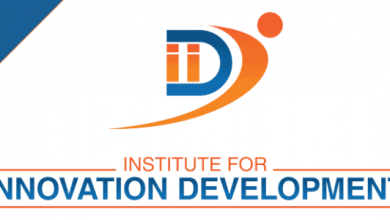Why Getting Out of Debt Fast Isn't Always the Right Choice

To make Wealthtender free for readers, we earn money from advertisers, including financial professionals and firms that pay to be featured. This creates a conflict of interest when we favor their promotion over others. Read our editorial policy and terms of service to learn more. Wealthtender is not a client of these financial services providers.
➡️ Find a Local Advisor | 🎯 Find a Specialist Advisor

If you’re in debt right now you’ve probably heard a lot of advice about how you should get out of it as fast as possible. That way you’ll pay less interest overall — and that just makes sense, right? You should cut expenses, stop all discretionary spending and just throw everything at getting out of debt. If you can make that work, that’s great — but for many of us it’s simply not realistic. Here are three good reasons to get out of debt slowly.
Fast Isn’t Always Sustainable
We can all cut expenses, stop all discretionary spending and just throw everything at getting out of debt for a short period. It even feels quite satisfying. We can turn a no-spend month into a game, and our brains love a bit of gamification, but a no-spend life can feel very restricting, and more like survival than living.
Putting our entire life on hold while we get out of debt is frustrating and — for many of us — not sustainable. We all need to enjoy life, which is why I recommend putting a little fun money in your budget. Yes, even while paying down debt.
When people ask me for advice about debt I always say the same thing. Make a plan to eliminate it. There’s a difference between ‘pay down debt’ and ‘make a plan to pay down debt’. One is a vague goal with lots of steps and is quite overwhelming. The other is something you can do in the next hour. Make the plan sensible and sustainable, and when the plan is made, stick to it.
Debt Isn’t Always Your Top Priority
Paying off debt very aggressively can mean putting all your spare money from every pay check into debt pay off, which means leaving yourself broke again right at the beginning of your pay cycle. This means that if an emergency happens, you may end up going deeper into debt. And that will often be an expensive form of debt like a credit card, because that’s what’s most convenient when an emergency happens.
Sometimes debt has to come lower down your list of priorities, behind essential expenses, building your emergency fund, and sometimes even investing for your future. It is perhaps controversial (though it shouldn’t be) that it should also come behind other things like your physical and mental health and your ability to enjoy life. By all means find as many free ways to enjoy life as possible, but don’t jeopardize your mental health by denying yourself absolutely everything you enjoy doing that costs a little money.
Paying Off Debt Isn’t Always the Best Use of Money
Someone told me recently that she was happy about a small but significant-to-her windfall she’d had because it meant she could finally pay off her (fairly low) credit card debts. Great idea, right? Except that I knew she’d recently switched to a long-term 0% interest card. She’s also covering her expenses (including minimum payments on the credit card debt) fine with her current wages.
She’d be better off putting that windfall in a safe, high-interest account for now, continuing to pay off the interest-free debt, and building up a little more money in interest payments on the money. The important thing here is to ring-fence that money so it’s there for paying off the debt when the interest-free period is up. There’ll just be a little more of it.
Paying off debt fast is an admirable goal and doing everything you can to do it is a great idea. Just make that what you’re doing is sustainable, sensible, and supportive of your life goals and mental health. Good debt management strategies should reduce stress, not increase it.
Karen Banes is a freelance writer specializing in entrepreneurship, parenting and lifestyle. She writes articles, website content, ebooks and the occasional award winning short story. Her work has appeared in a range of publications both online and off, including The Washington Post, Life Info Magazine, Transitions Abroad, Brave New Traveler, Natural Parenting Group, and Copia Magazine. Learn More About Karen




